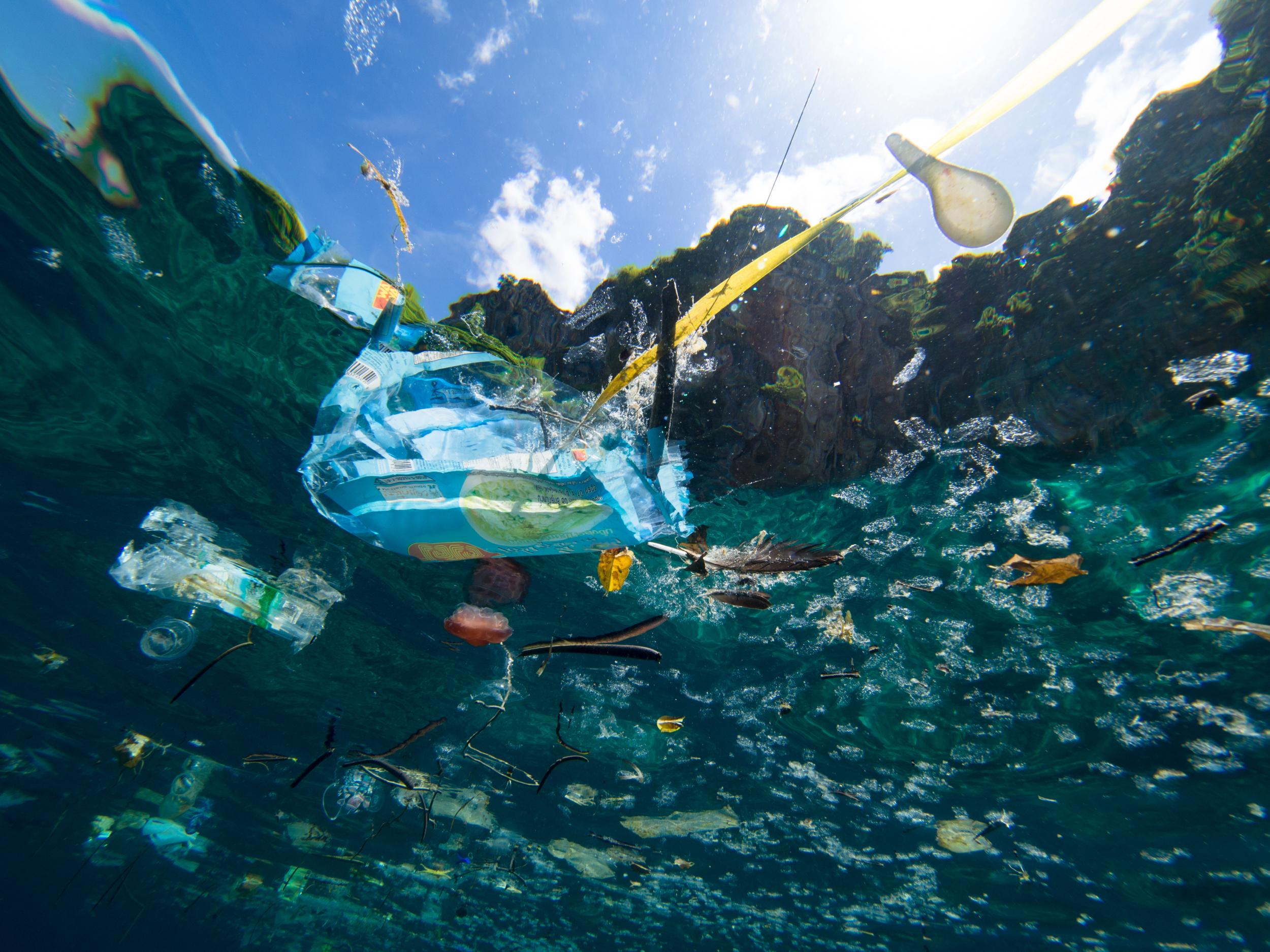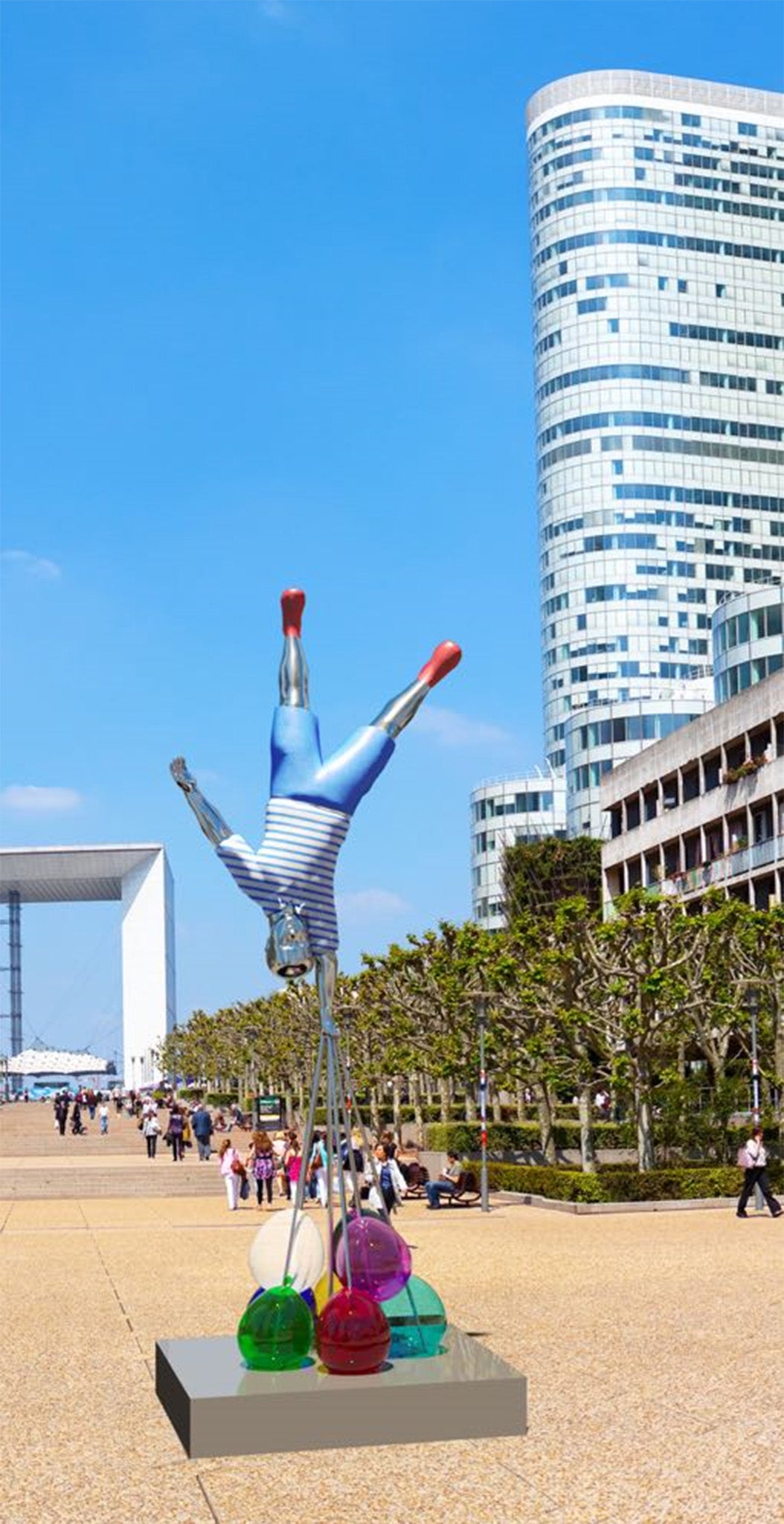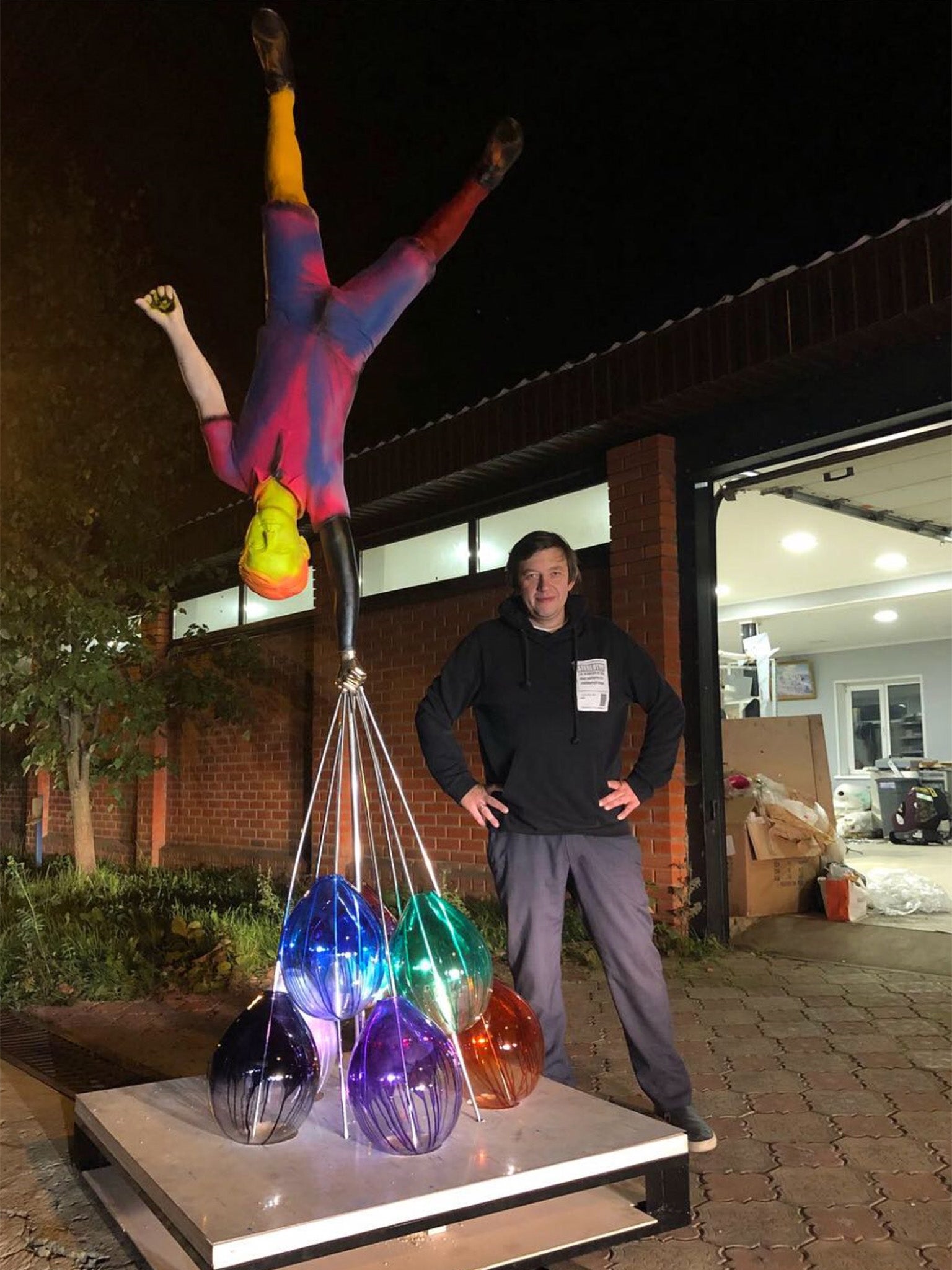I'm using art to highlight the plague of plastic waste which is killing our planet
Today, there are five large trash vortexes floating in the world’s oceans. One of them, the Great Pacific Garbage Patch, is the size of India, Europe and Mexico combined

Your support helps us to tell the story
From reproductive rights to climate change to Big Tech, The Independent is on the ground when the story is developing. Whether it's investigating the financials of Elon Musk's pro-Trump PAC or producing our latest documentary, 'The A Word', which shines a light on the American women fighting for reproductive rights, we know how important it is to parse out the facts from the messaging.
At such a critical moment in US history, we need reporters on the ground. Your donation allows us to keep sending journalists to speak to both sides of the story.
The Independent is trusted by Americans across the entire political spectrum. And unlike many other quality news outlets, we choose not to lock Americans out of our reporting and analysis with paywalls. We believe quality journalism should be available to everyone, paid for by those who can afford it.
Your support makes all the difference.A disaster film might start with a scientist who foresees a global disaster calling a friend at the White House. The friend thinks for a minute and then goes straight to the President, who, after a moment of disbelief, then takes everything into his powerful hands. In the end, all is well, and even if many people die, humanity at large pulls through.
In comparison to our contemporary situation, this type of scenario is more utopian than dystopian. Our leaders have failed to take matters into their own hands: look at the US withdrawal from the Paris Agreement on climate change. What this means for us, humanity at large, is that we have to figure out how to deal with environmental degradation, which will eventually kill our ecosystems and us, all on our own.
I would compare our use of plastic to smoking: a combination of a mindless habit and an addiction. Smoking and plastic use actually have much in common, because everyone knows that one plastic bag, much like one cigarette, won’t harm you. The harm comes from sustained, continuous use.
Allen Carr, a British professor and author of books on quitting smoking, created a methodology that I would apply to plastic. All we need to do is spread the knowledge and step out of the cycle of mistakes we make, slowly destroying the culture of plastic use.
No parent in the world would willingly allow their child to smoke. Time and time again they will drill into their child why smoking is harmful. I believe that this is the same thing we need to do to eradicate plastic pollution. After all, plastic is great if you use it moderately and recycle it, but it’s murderous if you just throw it away with regular detritus.
What should we do to teach people to stop throwing away plastic into the regular bin and recycle?
We all know that science can be good and evil. I’m quite sure that there are a fair few unpublished discoveries that were pushed under the rug before entering the world by those who realised that these discoveries could destroy us.

But this wasn’t the case with plastic. Invented in 1807, plastic started being mass-produced only 100 years later. In some three quarters of a century, humanity was addicted.
Not many know that today there are five large trash vortexes floating in the world’s oceans. One of them, the Great Pacific Garbage Patch, is the size of India, Europe and Mexico combined. And this is just its surface! Smaller and heavier plastic pieces sink to the sea floor; or worse, are consumed by marine life. In the North Pacific Ocean, there are now six times more pieces of plastic than plankton.
Like a pathological virus, plastic has even penetrated the Arctic ice, and the ruler of the ocean, the Great Blue Whale, in whose stomach we frequently find plastic.
Who would have thought that it wouldn’t be nuclear energy or some pandemic that will bring the world to the brink of extinction? Who would have thought that we would destroy our planet with something as useful as organic polymers? The apocalypse will be so very dull.
I don’t believe that one single person can fight the world’s corporations and force them to stop producing plastic en masse and switch to, say, glass. However, all of us together are that “friend from the White House” – we have great influence and can change the world. We can do this by creating new habits for ourselves.
People get used to convenience, but how do we step out of our comfort zones and start doing something that isn’t currently natural to us? Three simple rules can help each of us make a small change, which as a result will create a huge change for the entire population. It’s not utopian, it’s a reality that can be effective.
The three rules are:
• Don’t throw plastic into bins or sewers.
• Don’t buy small plastic containers (such as water bottles).
• Shop with your own, reusable bag, even if it’s plastic.
Only this way can we create a new culture. The Independent has highlighted the problem in its Cut the Cup Waste campaign. I want it to become uncool, unfashionable, and as a result shameful to buy a plastic bag at a supermarket.

This is why my set of sculptures, Why People Can’t Fly, is not merely a symbol of pollution, but a call to action. Created using plastic waste from every country in the world, it should show that we are capable, and we must, solve this global problem that we ourselves have created. Only than can humanity reach its full potential.
This global problem, more endemic than corruption, potentially more deadly than war, is the “virus of the thoughtless plastic”. This is the true plague of the 21st century, which will kill our planet and every species on it without a change. If we don’t change our habit, we can’t ensure that our children have a future.
Vasily Klyukin is a Russian architect and artist. This September, he is designing aset of sculptures made from donated plastic waste from every country in the world. Find out more at www.whypeoplecantfly.com.
Join our commenting forum
Join thought-provoking conversations, follow other Independent readers and see their replies
Comments